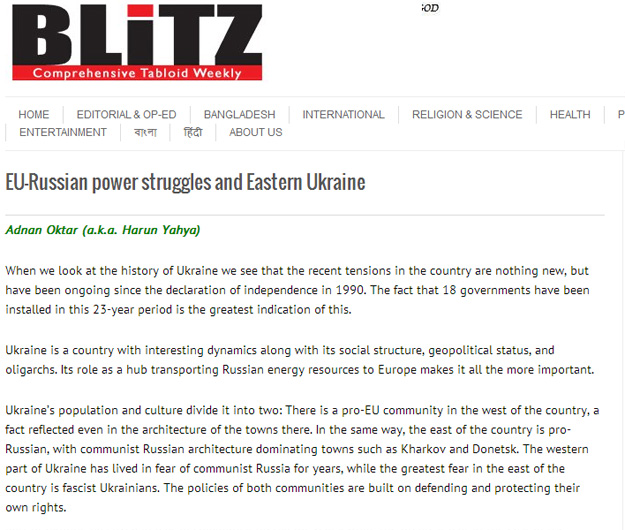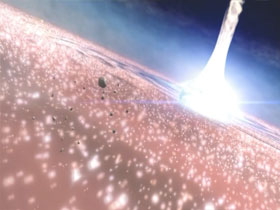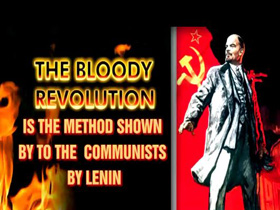Bigotry: The Dark Danger
EU-Russian power struggles and Eastern Ukraine

When we look at the history of Ukraine we see that the recent tensions in the country are nothing new, but have been ongoing since the declaration of independence in 1990. The fact that 18 governments have been installed in this 23-year period is the greatest indication of this.
Ukraine is a country with interesting dynamics along with its social structure, geopolitical status, and oligarchs. Its role as a hub transporting Russian energy resources to Europe makes it all the more important.
Ukraine’s population and culture divide it into two: There is a pro-EU community in the west of the country, a fact reflected even in the architecture of the towns there. In the same way, the east of the country is pro-Russian, with communist Russian architecture dominating towns such as Kharkov and Donetsk. The western part of Ukraine has lived in fear of communist Russia for years, while the greatest fear in the east of the country is fascist Ukrainians. The policies of both communities are built on defending and protecting their own rights.
The latest events in Ukraine began with an intensification of the EU and Russia’s attempts to expand their respective political and economic influence into Ukraine. Pro-Russian president Yanukovich’s resignation and ultimate flight to Russia and the assumption of power by the pro-EU opposition was perceived by many as a success for the EU in the beginning. However, a countermove by Putin, who has long been deeply uneasy over Ukraine, reversed the situation.
The Autonomous Republic of Crimea, with its large ethnic Russian population, decided to hold a referendum on independence. Following the referendum, it declared its independence and joined Russia following a decision by the Crimean Parliament and subsequent approval of the Russian Parliament.
With the Crimean declaration of independence and its subsequent unification with Russia, uprisings began in other pro-Russian towns in the east of Ukraine. Russians in Donetsk, Kharkov and Luhansk, discontented with the Kiev administration for several years, rose up and seized government buildings. Protesters in Donetsk in particular loudly began demanding their own referendum for independence.
The main source of income in western Ukraine is agriculture spread over a vast expanse of land. Compared with the west, the east has a more advanced industrial sector and also enjoys the country’s largest revenues – mining, industry and heavy industry. The four most populous cities - excluding Kiev - are all in the east.
Kharkov in the east is an industrial center and the country’s second-largest city. Donetsk and Luhansk are the centers of Ukrainian metallurgy and mining; forty percent of the populations of these towns are Russian, and residents there typically speak Russian in their daily lives. The wealthy businessmen who shape politics, in other words the oligarchs of Ukraine, also live in Donetsk.
The residents of the east are worried by the pro-EU, nationalist Ukrainians who came to power after Yanukovich. The main cause of this worry was how the new government lifted the privileged status enjoyed by the Russian language as soon as it came to power. This community migrated from Russia centuries ago and therefore regards itself as Russian and has no wish to speak Ukrainian. Eastern Ukrainian citizens are sure that the provisional government installed after Yanukovich will not defend their rights in Parliament; they want their rights protected via representation and having their voices heard in Parliament. The east, rich in industry and mining, represents a large part of Ukraine’s national revenues. Easterners are also unhappy at those revenues being spent in the west.
Russia is the protector of those Russians who were dispersed after the collapse of the USSR. Russia regards Ukraine, Crimea, Georgia, Belarus and Moldova as its own backyard and is uneasy at Western countries trying to establish influence there on the pretexts of democracy, free trade, human rights and the like: It particularly regards the 2003 Rose Revolution in Georgia and the 2004 Ukraine Orange Revolution as the result of these policies of the West. Another reason for Russian unease is Georgian and Ukrainian membership in NATO, which was brought to the agenda in 2008.
Even if Russia and the Western countries engage in power struggles in Ukraine, bearing in mind their mutual economic relations there is very little possibility of real war breaking out. The United Kingdom and Germany are therefore stressing diplomacy and not hurrying to impose economic sanctions; they know full well that any serious economic sanctions will have an impact on their own economies too. To consider the German example, the volume of trade between Germany and Russia is $77 billion per annum. In 2013, German exports to Russia were worth $36 billion, meaning the employment of 300,000 people in Germany, while imports stood at $41 billion. Some 6,000 German firms have investments in Russia, while Russia meets some 50% of Germany’s energy needs.
Like Germany, the majority of European countries are quite dependent on Russian energy, and Russia is making good use of this opportunity. In determining energy prices, Russia has contracts with, and different prices for, all European countries since they do not act collectively for negotiation. Russian President Putin is aware of this division among European countries. Additionally, the fact that much of the assets of Russian oligarchs are tucked away in various European countries, and their investments become a significant obstacle to Europe imposing sanctions on Russia.
Nonetheless, the greatest risk for Russia is joint sanctions that may be imposed by the EU, NATO and other countries. The Russian stock exchange has lost $58 billion in the latest Ukrainian crisis.
There is no doubt that the main aspiration for all of us is the maintenance of Ukraine’s territorial integrity. Russia is the key to the rebuilding of peace and stability in the region. Putin’s first priority is to guarantee Russia’s territorial integrity and the lives and property of Russians spread across a wide expanse.
Russian expansion toward the West will no doubt sound warning bells in East European countries. The EU had to compromise with Putin both for its own economic interests and to prevent Russia from coming any closer to it.
Peace can be achieved with an agreement that overcomes the fears and concerns of the Russians in Ukraine, expands their rights and deals with Russia’s concerns over its position in the region. As Ukraine and the EU sign a partnership and free trade agreement, Ukraine can afford in this agreement a guarantee to the Russians that this will not damage relations and agreements with Russia itself and Putin’s worries can thereby be overcome. This conflict can be halted by trying compromise, dialogue and a willingness to protect the interests of the other side and as always, by all the parties concerned making sacrifices. So long as everyone sits down with good intentions and leaves their respective rivalries at the door, a peaceful solution can always be found.
Adnan Oktar's piece on Weekly Blitz:





